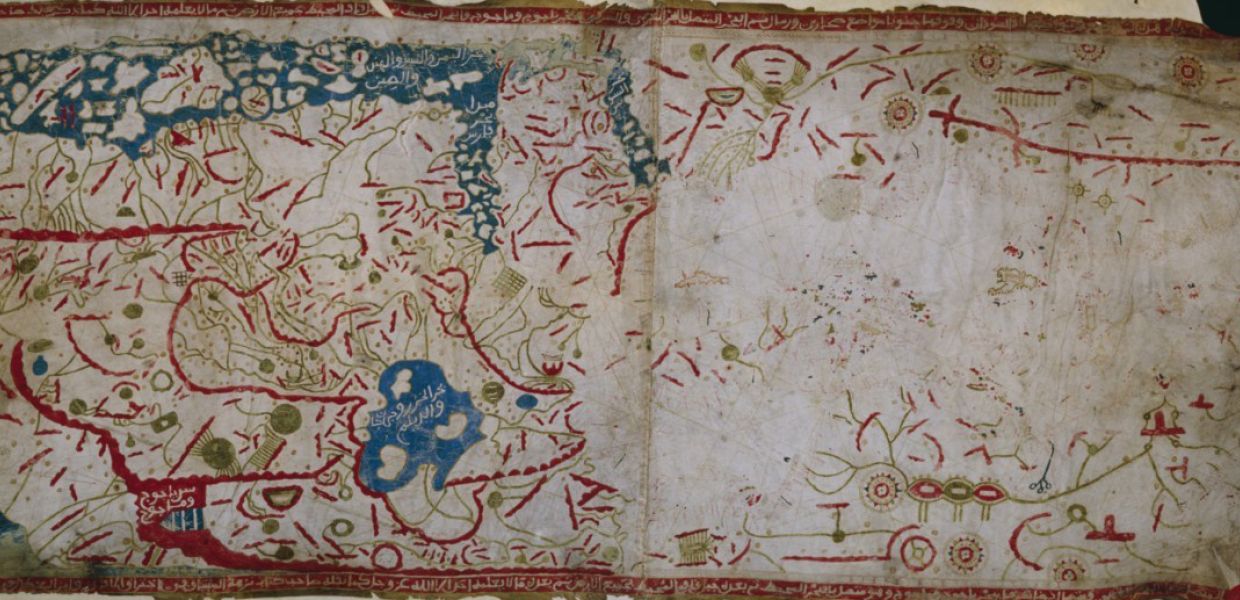Uncharted Territory
Discussing Digital Strategies for Cultural Heritage Institutions at the Frankfurt Book Fair

- Title:
- Carte nautique de l'Océan Atlantique Nord-Est de la Mer Méditerranée (...)
- Date:
- 1600
- Institution:
- Bibliothèque nationale de France
- Copyright:
- Public Domain
A digital strategy should no longer be an add-on for any organisation. A modern cultural heritage institution needs to operate on three platforms: the building, online and its network, creating opportunities to learn, share and participate. In this way, it can be a centre of learning and civic life. A multifaceted destination that attracts, educates, and inspires people through participation. Its audiences are partners and collaborators, true stakeholders in its future, its content, its impact.
Living in the age of participatory culture is a challenge that our museums, libraries, archives and audio-visual collections are having to rise to. They were conceived as top-down institutions whereas innovation tends to come from the bottom up. From individuals solving problems, from communities wanting to change and participate, to take ownership of their culture. Making use of this eager volunteer network, keeping it engaged has to be integral to the three platforms. Any strategy must be voiced in a completely fused way, our language needs to move from a “digital strategy” to what we are trying to achieve, the impact we want to have, where online is just one of the mediums that help us get there.
Culture 3.0 places culture at the heart of our social and economic development, where value is produced not only through priced content, but also through generic participation. Where culture becomes increasingly a precondition of all kinds of economic value generation processes (‘culturalization’ of the economy) and is no longer just use of free time but entrenched in the fabric of daily life. The UN Live museum is conceived on the three platforms. It doesn’t separate the building, from the network, from its online activities but focuses on increasing the creative and problem-solving capacity of communities around the world as a means of achieving the sustainable development goals.
Unchartered territory looks at these ways of working as inspiration for how to move from bricks to bricks and online, where the power of people interacting with our cultural heritage is mobilised. It uses the work and knowledge of major European organisations: Rijksmuseum, Berlin State Library within the Stiftung Preußischer Kulturbesitz, and the Museum für Kunst und Gewerbe Hamburg to show what has and can be done to drive change to possibly create a movement where our efforts move us from the experience economy to a digital economy which is sustainable (replicable), diverse and relevant.
Join us in THE ARTS+ Salon, at the Frankfurt Book Fair (Hall 4.1) on 11th October at 10:30-12:00 - we have 60 free tickets - for what promises to be an inspiring, but actionable session in the able hands of Michael Gubbins, a journalist and analyst with particular expertise in film and digital media and some very useful insights into the transformation of consumer behaviour in a number of creative industries.
Speakers
- Pier Luigi Sacco, IULM University Milan, Culture 3.0
- Michael Edson, UNLive - Museum for the United Nations
- Reinhard Altenhöner- Berlin State Library, Stiftung Preußischer Kulturbesitz
- Saskia Scheltjens - Rijksmuseum
- Antje Schmidt - Museum für Kunst und Gewerbe Hamburg
Interviewed by: Michael Gubbins, Sampomedia
Graphic Recorder: Anne Lehmann
